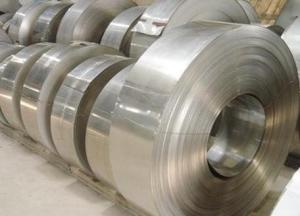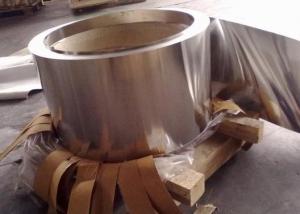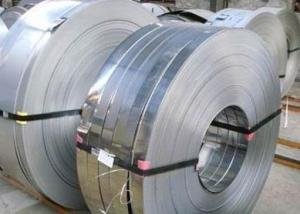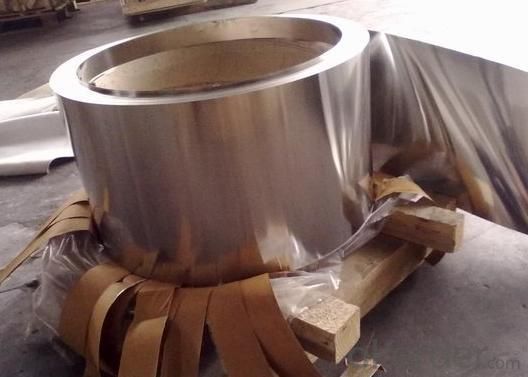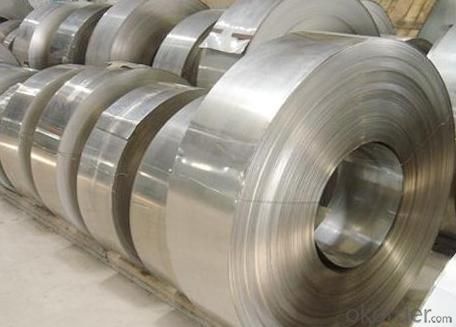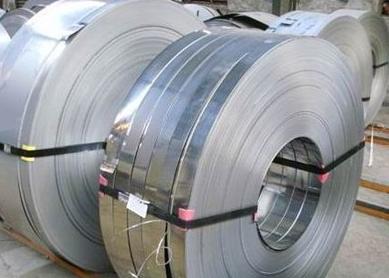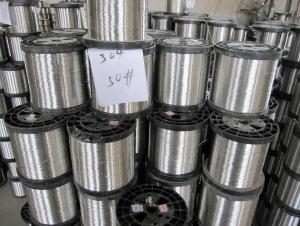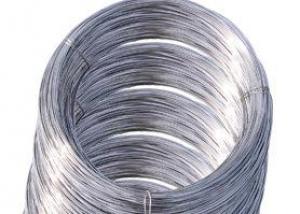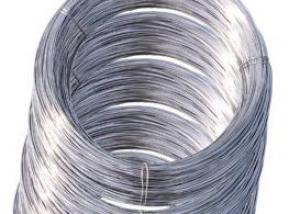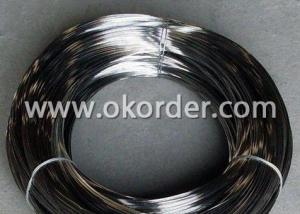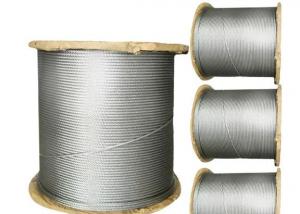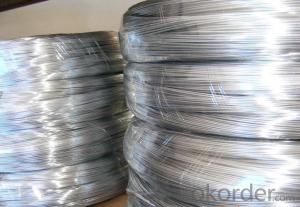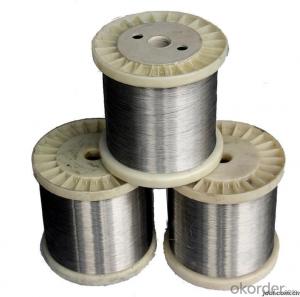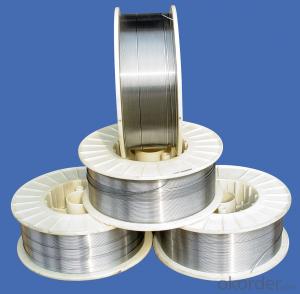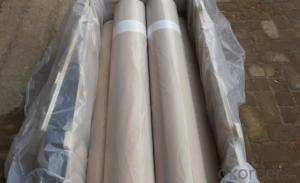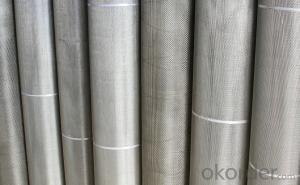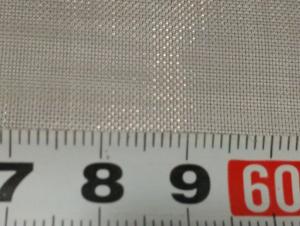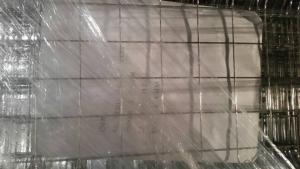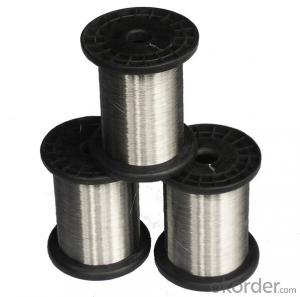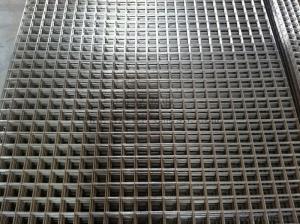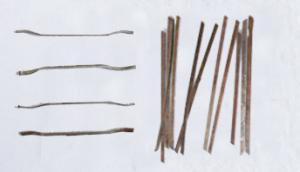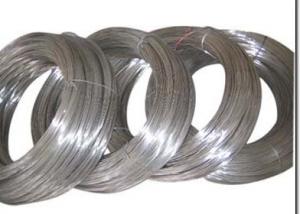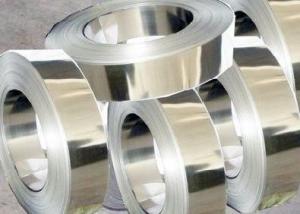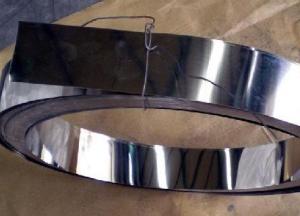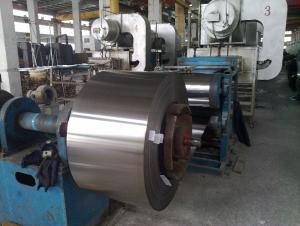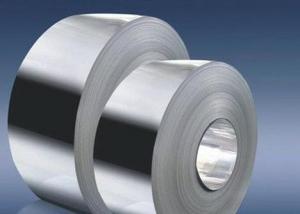SUS304L Stainless Steel Strips
- Loading Port:
- China Main Port
- Payment Terms:
- TT or LC
- Min Order Qty:
- 1 Ton m.t.
- Supply Capability:
- 2000 Tons Per Month m.t./month
OKorder Service Pledge
OKorder Financial Service
You Might Also Like
304L Stainless Steel Strips
1. Chemical composition
|
C |
Si |
Mn |
P |
S |
Ni |
Cr |
|
Max0.03 |
Max1.00 |
Max2.00 |
Max0.045 |
Max0.03 |
9.0-13.0 |
18.0-20.0 |
2. Mechanical properties
|
Yield Strength |
Tensile |
Elongation |
Hardness (HV) |
Hardness (HRB) |
|
≥175 |
≥480 |
≥40 |
≤200 |
≤90 |
3. Standard: AISI, ASTM, GB, EN, DIN, JIS
4. Surface: 2B, NO.1, BA, NO.4, Hairline, SB, Mirror finish, Anti-skid, Cherkered etc.
5. Size: Thickness: 0.3-3mm (cold rolled), 3-40mm (hot rolled)
Width: 1000mm or 1219mm or 1240mm for cold rolled, 1500mm for hot rolled.
Length: As customers' request.
6. MOQ: 1 Ton
7. Payment terms: T/T or L/C
8. Packing: Seaworthy package with wooden or Iron pallets with the paper and the steel strip, or as customers' request.
9. Delivery time: Usually about 7 days after we confirming the order, or according to your quantity.
If you have any question or demand, pls feel free to contact me.
| Standard Name | Chemical Composition | Mechanical Properties | ||||||||||||||
| JIS | GB | AIST | EN | C | Si | Mn | P | S | Ni | Cr | Others | Yield Strength | Tensile | Elongation | Hardness | |
| UNS | max | max | max | max | max | max | N/mm2 | N/mm2 | % | HV | HRB | |||||
| Austenitic stainless steels | ||||||||||||||||
| SUS201 | 1Cr17Mn6Ni5N | 201 | ** | 0.15 | 1 | 5.50-7.50 | 0.06 | 0.03 | 1 | 16.00-18.00 | N0.25 | 245 | 640 | 40 | 253 | 100 |
| SUS202 | 1Cr18Mn8Ni5N | 202 | ** | 0.15 | 1 | 7.50-10.00 | 0.06 | 0.03 | 4.00-6.00 | 17.00-19.00 | N0.25 | 245 | 590 | 40 | 218 | 95 |
| SUS301 | 1Cr17Ni7 | 301 | 1.431 | 0.15 | 1 | 2 | 0.045 | 0.03 | 6.00-8.00 | 16.00-18.00 | — | ≥205 | ≥520 | ≥40 | ≤218 | ≤95 |
| SUS301L | 00Cr17Ni7 | 301L | 1.4318 | 0.03 | 1 | 2 | 0.045 | 0.03 | 6.00-8.00 | 16.00-18.00 | N:0.20 | ≥215 | ≥550 | ≥45 | ≤218 | ≤95 |
| SUS304 | 0Cr18Ni9 | 304 | 1.4301 | 0.08 | 1 | 2 | 0.045 | 0.03 | 8.0-10.50 | 18.00-20.00 | — | ≥205 | ≥520 | ≥40 | ≤200 | ≤90 |
| SUS304L | 00Cr19Ni10 | 304L | 1.4307 | 0.03 | 1 | 2 | 0.045 | 0.03 | 9.00-13.00 | 18.00-20.00 | — | ≥175 | ≥480 | ≥40 | ≤200 | ≤90 |
| SUS304CU | 0Cr18Ni9 | 304 | 1.4301 | 0.08 | 1 | 2 | 0.045 | 0.03 | 8.00-10.50 | 18.00-20.00 | CU:0.70-1.30 | ≥205 | ≥520 | ≥40 | ≤200 | ≤90 |
| SUS304Ni8.5 | 0Cr18Ni9 | 304 | 1.4301 | 0.08 | 1 | 2 | 0.045 | 0.03 | 8.50-10.50 | 18.00-20.00 | — | ≥205 | ≥520 | ≥40 | ≤200 | ≤90 |
| SUS304Ni9 | 0Cr18Ni9 | 304 | 1.4301 | 0.08 | 1 | 2 | 0.045 | 0.03 | 9.00-10.50 | 18.00-20.00 | — | ≥205 | ≥520 | ≥40 | ≤200 | ≤90 |
| SUS316 | 0Cr17Ni12Mo2 | 316 | 1.4401 | 0.08 | 1 | 2 | 0.045 | 0.03 | 10.00-14.00 | 16.00-18.00 | Mo:2.00-3.00 | ≥205 | ≥520 | ≥40 | ≤200 | ≤90 |
| SUS316L | 00Cr17Ni14Mo2 | 316L | 1.4404 | 0.03 | 1 | 2 | 0.045 | 0.03 | 10.00-14.00 | 16.00-18.00 | Mo:2.00-3.00 | ≥175 | ≥480 | ≥40 | ≤200 | ≤90 |
| SUS316Ti | 1Cr18Ni12Mo2Ti | 316Ti | 1.4571 | 0.08 | 1 | 2 | 0.035 | 0.03 | 11.0-14.0 | 16.00-19.00 | Ti 5*C%-0.70,Mo 1.8-2.5 | ≥205 | ≥520 | ≥40 | ≤200 | ≤90 |
| SUS321 | 0Cr18Ni10Ti | 321 | 1.4541 | 0.08 | 1 | 2 | 0.045 | 0.03 | 9.00-13.00 | 17.00-19.00 | Ti:5*C% | ≥205 | ≥520 | ≥40 | ≤200 | ≤90 |
| SUS309S | 0Cr23Ni13 | 309S | 1.4833 | 0.08 | 1 | 2 | 0.045 | 0.03 | 12.00-15.00 | 22.00-24.00 | — | ≥205 | ≥520 | ≥40 | ≤200 | ≤90 |
| SUS310S | 0Cr25Ni20 | 310S | 1.4845 | 0.08 | 1.5 | 2 | 0.045 | 0.03 | 19.00-22.00 | 24.00-26.00 | — | ≥205 | ≥520 | ≥40 | ≤200 | ≤90 |
| Ferritic stainless steels | ||||||||||||||||
| SUH409L | 00Cr12Ti | 409L | 1.4512 | 0.03 | 1 | 1 | 0.04 | 0.03 | — | 10.50-11.75 | Ti:6*C%-0.75 | ≥175 | ≥360 | ≥25 | ≤175 | ≤80 |
| SUS436L | 00Cr17Mo | ** | ** | 0.025 | 1 | 1 | 0.04 | 0.03 | — | 16.00-19.00 | Mo:0.75-1.50、Ti,Nb,Zr:8*(C%+N%)-0.80 | ≥245 | ≥410 | ≥20 | ≤230 | ≤96 |
| SUS410 | ** | 410 | 1.4006 | 0.15 | 1 | 1 | 0.04 | 0.03 | — | 11.50-13.50 | — | ≥205 | ≥440 | ≥20 | ≤210 | ≤93 |
| SUS410L | 00Cr12 | ** | 1.4003 | 0.03 | 1 | 1 | 0.04 | 0.03 | — | 11.00-13.50 | — | ≥195 | ≥360 | ≥22 | ≤200 | ≤88 |
| SUS439 | 00Cr17 | ** | 1.451 | 0.03 | 1 | 1 | 0.04 | 0.03 | 0.5 | 17.00-19.00 | Ti:〔0.20+4*(C+N)〕-1.10,Al:0.15:N:0.030 | ≥205 | ≥415 | ≥22 | ≤200 | ≤89 |
| SUS434 | ** | 434 | 1.4113 | 0.12 | 1 | 1 | 0.04 | 0.03 | — | 16.00-18.00 | — | ≥205 | ≥450 | ≥22 | ≤200 | ≤88 |
| SUS444 | 00Cr18Mo2 | 444 | 1.4521 | 0.025 | 1 | 1 | 0.04 | 0.03 | — | 17.00-20.00 | Mo:1.75-2.50 Ti,Nb,Zr:8*(C%+N%)-0.80 | ≥245 | ≥410 | ≥20 | ≤230 | ≤96 |
| SUS430 | 1Cr17 | 430 | 1.4016 | 0.12 | 1 | 1 | 0.04 | 0.03 | — | 16.00-18.00 | — | ≥205 | ≥420 | ≥22 | ≤200 | ≤88 |
| Martensitic stainless steels | ||||||||||||||||
| SUS420J1 | 2Cr13 | 420 | 1.4021 | 0.16-0.25 | 1 | 1 | 0.04 | 0.03 | — | 12.00-14.00 | — | ≥225 | ≥520 | ≥18 | ≥234 | ≥97 |
| SUS420J2 | 3Cr13 | 420JS | 1.4028 | 0.26-0.40 | 1 | 1 | 0.04 | 0.03 | — | 12.00-14.00 | — | ≥225 | ≥540 | ≥18 | ≥247 | ≥99 |
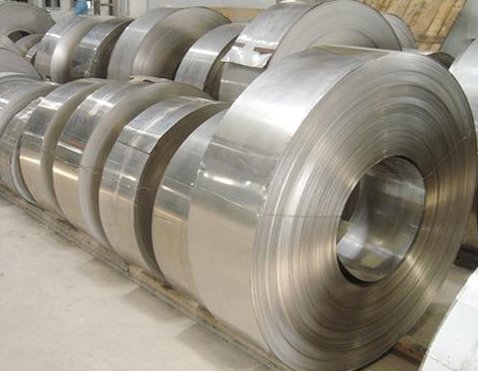
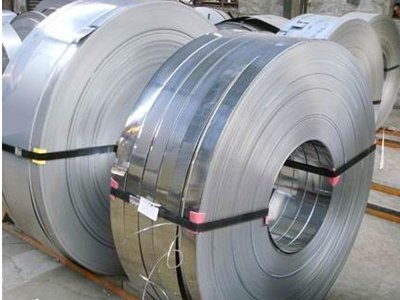
- Q: Can stainless steel wire be supplied in custom diameters?
- Yes, stainless steel wire can be supplied in custom diameters. Stainless steel wire is available in a wide range of diameters to meet different requirements and applications. Manufacturers and suppliers can provide custom diameters based on specific customer needs and specifications. This allows for greater versatility and flexibility in using stainless steel wire for various purposes such as in the manufacturing of springs, wire mesh, cables, and other industrial applications. By offering custom diameters, stainless steel wire can be tailored to meet specific strength, durability, and dimensional requirements, ensuring optimal performance and functionality in different industries.
- Q: Is stainless steel wire suitable for automotive brake cables?
- Yes, stainless steel wire is suitable for automotive brake cables. Stainless steel is known for its high strength, corrosion resistance, and durability, making it an excellent choice for brake cables. It can withstand the harsh conditions of the automotive environment and provide reliable braking performance.
- Q: Is stainless steel wire resistant to atmospheric corrosion?
- Stainless steel wire has the ability to resist atmospheric corrosion. It is specifically engineered to withstand corrosion in different environments, including atmospheric conditions. This resistance is achieved through the presence of chromium, which creates a protective layer on the surface of the stainless steel wire. This layer, referred to as the passive film, acts as a barrier between the wire and corrosive elements present in the atmosphere, such as moisture, oxygen, and pollutants. As a result, stainless steel wire remains intact and unaffected when exposed to atmospheric conditions, without experiencing significant corrosion or deterioration. Due to this characteristic, stainless steel wire is widely utilized in various applications, such as outdoor structures, marine environments, and industrial settings where exposure to the atmosphere is a concern.
- Q: Can stainless steel wire be used for wire EDM cutting?
- Wire EDM cutting can utilize stainless steel wire for cutting through conductive materials with precision. Stainless steel wire is preferred due to its strength, corrosion resistance, and electrical conductivity. It is capable of effectively cutting through metals like steel, aluminum, titanium, and exotic alloys. By using stainless steel wire in wire EDM cutting, intricate shapes can be achieved with tight tolerances, making it a versatile option for manufacturing applications.
- Q: Where are the stainless steel screws?
- The key is to consider the use and the price. Stainless steel screws are more expensive.
- Q: Can stainless steel wire be used for electrical purposes?
- Stainless steel wire is indeed applicable for electrical purposes. Renowned for its remarkable electrical conductivity, resistance to corrosion, and durability, stainless steel proves to be a fitting material for various electrical uses. It finds common utility in electrical wiring, grounding systems, and electrical connectors. Furthermore, stainless steel wire plays a crucial role in the construction of electrical appliances, circuit boards, and electronic devices. Its exceptional thermal properties and ability to withstand extreme temperatures make it a dependable choice for electrical needs. Moreover, the non-magnetic nature of stainless steel wire presents an advantage in situations where minimizing magnetic interference is essential. All in all, stainless steel wire emerges as a versatile and trustworthy option for electrical applications, providing both electrical conductivity and resistance against corrosion.
- Q: Is stainless steel wire resistant to wear?
- Yes, stainless steel wire is highly resistant to wear. It is known for its durability and ability to withstand various forms of abrasion, making it suitable for applications where wear resistance is crucial.
- Q: Can stainless steel wire be used for marine applications?
- Indeed, stainless steel wire is suitable for marine applications. Due to its resistance to corrosion, stainless steel is an optimal material for use in marine environments that are frequently exposed to saltwater, moisture, and other unforgiving conditions. It finds extensive use in a variety of marine applications such as rigging, wire rope, fishing nets, and marine electronics. Thanks to its exceptional resistance to rust, corrosion, and staining, stainless steel wire guarantees durability and longevity in marine settings. Furthermore, stainless steel possesses strength, reliability, and the ability to withstand high levels of tension and stress, making it an appropriate choice for marine applications that demand robustness and endurance.
- Q: What are the different types of stainless steel wire springs used in the aerospace industry?
- Various types of stainless steel wire springs are commonly utilized in the aerospace industry to meet the industry's stringent demands. These springs are designed with high strength, corrosion resistance, and reliability in mind. One specific type of stainless steel wire spring frequently employed in the aerospace field is the 17-7PH spring. Crafted from a precipitation-hardening stainless steel alloy, this spring showcases exceptional strength and corrosion resistance. It finds its application in scenarios necessitating high fatigue resistance and the ability to endure extreme temperatures. Another widely used stainless steel wire spring is the 302 spring, which is manufactured from a non-magnetic austenitic stainless steel alloy. It is renowned for its outstanding corrosion resistance and is commonly employed in aerospace applications where protection against chemicals and moisture is critical. Moreover, the aerospace industry extensively incorporates the 316 stainless steel wire spring. This spring is composed of a corrosion-resistant austenitic stainless steel alloy and is highly regarded for its exceptional resistance to pitting and crevice corrosion. It is frequently employed in situations requiring strong performance and resilience in harsh environments. Additionally, the Inconel 718 spring is another type of stainless steel wire spring employed in the aerospace sector. Constructed from a nickel-based superalloy, this spring offers exceptional strength and corrosion resistance at high temperatures. It is often relied upon in aerospace applications that demand exceptional performance in elevated temperature conditions. In summary, the selection of different types of stainless steel wire springs in the aerospace industry depends on specific requirements such as strength, corrosion resistance, and temperature resistance. These springs play a critical role in ensuring the safety, reliability, and performance of aerospace components and systems.
- Q: Can stainless steel wire be used for mechanical fastening?
- Yes, stainless steel wire can be used for mechanical fastening. It is commonly used in various applications where high strength and corrosion resistance are required, such as in the automotive, construction, and manufacturing industries. Stainless steel wire can be used for fastening components together securely and reliably.
Send your message to us
SUS304L Stainless Steel Strips
- Loading Port:
- China Main Port
- Payment Terms:
- TT or LC
- Min Order Qty:
- 1 Ton m.t.
- Supply Capability:
- 2000 Tons Per Month m.t./month
OKorder Service Pledge
OKorder Financial Service
Similar products
Hot products
Hot Searches
Related keywords
